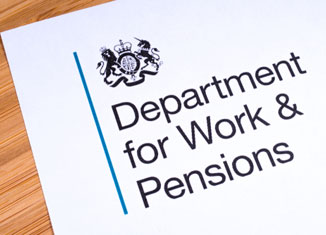The decision to delay Brexit until Halloween has given many UK boardrooms of housebuilders the chance to catch their breath. But even if Brexit is out of the way, another pressing issue has reared its head – a Pensions Bill.
The Pensions Bill will attempt to tackle the intractable problem of defined benefits (i.e. salary-related) pension schemes, which has attracted a significant amount of overdue attention in the housebuilding sector since the collapse of Carillion in early 2018. These schemes are sometimes described as “balance of cost” schemes. This means the employer (the housebuilder) is obliged to fund the original promises to employees if the scheme assets (including contributions paid) are insufficient to fund them. Naturally, these promises represent very long-term liabilities.
The employer covenant is the measure of the ability of the employer to meet its obligations to the scheme. As to whether an employer’s covenant is “strong” or “weak” or somewhere in between at a certain point in time, that requires professional expertise to analyse, and can include substantive subjective judgments on the value of assets such as goodwill.
 This has been an ongoing worry for the government, which came to a head in March last year. Then, the Department of Work & Pensions (DWP) published “Protecting Defined Benefit Pension Schemes”, a white paper that outlined ways to improve the regulatory system and set out a tougher approach to those who make “irresponsible decisions” concerning their pension scheme. That month, the Department for Business, Energy & Industrial Strategy followed suit by issuing a consultation on insolvency and corporate governance. This consultation, issued in response to the same high-profile corporate failures that inspired the DWP’s white paper, set out proposals with the aim of reducing the risk of such corporate failures occurring from governance shortcomings.
This has been an ongoing worry for the government, which came to a head in March last year. Then, the Department of Work & Pensions (DWP) published “Protecting Defined Benefit Pension Schemes”, a white paper that outlined ways to improve the regulatory system and set out a tougher approach to those who make “irresponsible decisions” concerning their pension scheme. That month, the Department for Business, Energy & Industrial Strategy followed suit by issuing a consultation on insolvency and corporate governance. This consultation, issued in response to the same high-profile corporate failures that inspired the DWP’s white paper, set out proposals with the aim of reducing the risk of such corporate failures occurring from governance shortcomings.
The ultimate result is that a Pensions Bill is now expected this year. The Bill will set out legislation to strengthen the powers of the Pensions Regulator and increase the penalties and sanctions it can impose – including criminal offences. We already have a good idea at this stage of what it will contain.
Notifiable events
The Bill will introduce two new “notifiable events”. These specified corporate events will require companies to formally notify the Pensions Regulator.
The first event would be the sale of a material part of the business of any company participating in a defined benefits scheme that has funding responsibility for at least 20% of its liabilities. The second would be the granting of security giving priority over the pension scheme as a creditor. However, a company will not be required to notify the Regulator when it pays dividends, although the Regulator may take dividend history into account in deciding the appropriateness of the funding agreement negotiated every three years between the employer and scheme trustee.
The employer or its parent company will be required to issue a “declaration of intent” to trustees when a group intends to sell a controlling interest in an employer participating in the pension scheme (or either of the two new notifiable events occurs), as soon as possible. The declaration must be copied to the Pensions Regulator, which will police what is then done.
The aim of this declaration is to open the door to a negotiation with the trustees before it is too late, to discuss mitigation to support the pension scheme once the transaction has completed.
Criminal offences and punishments
The Pensions Regulator will have a number of weapons in their arsenal to deter wrongdoing. They will be given wider powers of investigation as well as powers to issue civil penalties of up to £1 million when, for example, a housebuilder fails to issue a declaration of intent or flag a notifiable event.
Allied to this will be new criminal offences, punishable by up to seven years in prison, for willful or reckless behavior in relation to a pension scheme and/or failure to comply with the issue of a Contribution Notice. Such a notice is a statutory demand requiring a group company worldwide to pay money into a UK pension scheme. The Bill extends the circumstances in which the Regulator can issue a Contribution Notice; for example if a scheme employer is materially weaker after a corporate event, then the Regulator can seek money from the wider group company.
This isn’t something that will be hidden behind closed doors away from the public eye. If the Regulator considers it appropriate, it can make its investigations public, thereby raising the risk of associated reputational damage.
Retrospective action
These new powers could become law retrospectively to the date of the Bill, meaning it is paramount that housebuilders adopt a general approach of engaging with their pension scheme trustees as soon as possible.
This should be the case especially if there is any possibility any corporate activity group-wide could detrimentally impact on the ability of the scheme employers to meet their liabilities.
Engagement is likely to be far safer than keeping these stakeholders at arm’s length.




















